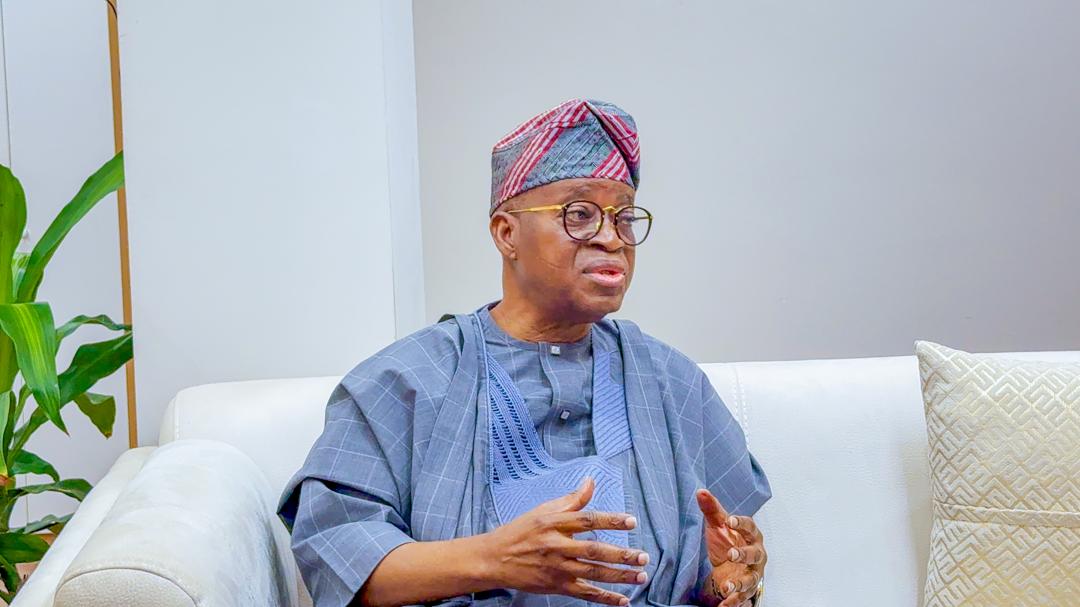The Minister of Marine and Blue Economy, Dr Adegboyega Oyetola, has said that the Blue Economy represents Nigeria’s next frontier for economic diversification beyond oil, with vast potential to drive sustainable growth, innovation, and job creation.
Speaking at the 2025 Chartered Institute of Logistics and Transport (CILT) Nigeria Conference held in Victoria Island, Lagos, on Wednesday, Oyetola said the creation of the Federal Ministry of Marine and Blue Economy by President Bola Ahmed Tinubu underscores the government’s commitment to repositioning the maritime and logistics sectors as key pillars of national development.
Represented by the Managing Director of Nigerian Ports Authority (NPA), Dr Abubakar Dantsoho, the Minister noted that with over 853 kilometres of coastline, numerous inland waterways, and a strategic maritime location, Nigeria is well placed to harness ocean and water resources for inclusive and sustainable prosperity.
However, he stressed that achieving this goal requires an efficient and integrated logistics and transport system capable of supporting trade, connectivity, and industrial growth.
Outlining key initiatives by the Ministry, Oyetola highlighted the Federal Government’s $1 billion port modernisation project in Lagos aimed at upgrading infrastructure, improving cargo handling, and expanding capacity. Similar projects, he said, are being planned for other ports to ensure balanced maritime development across the country.
He also cited ongoing efforts to enhance inland waterways through the National Inland Waterways Authority (NIWA) and to strengthen maritime security under the Deep Blue Project, which has helped Nigeria record zero piracy incidents in more than three years.
“Through the National Inland Waterways Authority (NIWA), we are improving navigability, safety, and connectivity across major inland routes, unlocking opportunities for hinterland trade and regional integration,” he said. “With the Deep Blue Project and other strategic interventions, we are safeguarding our maritime domain to encourage investment and reduce the cost of doing business. I am glad to inform you that for more than three years, Nigeria has recorded zero piracy on its waterways.”
The Minister revealed that a 10-year National Blue Economy Strategy has been developed to integrate maritime, fisheries, logistics, and coastal development policies into a unified framework. He reaffirmed the government’s commitment to working with the private sector through reforms and partnerships that encourage innovation and investment.
Commending the Chartered Institute of Logistics and Transport for promoting professionalism in the industry, Oyetola urged its members to embrace smart and green transport technologies, data-driven decision-making, and capacity building for young professionals.
“Our goal is not growth for growth’s sake, but sustainable and inclusive growth —one that balances economic opportunity with environmental stewardship and social equity. We must ensure that our coastal and riverine communities benefit from the emerging Blue Economy, that women and youth find meaningful employment within its value chains, and that our maritime and transport infrastructure is developed in harmony with global climate goals.
“This calls for collective responsibility: from government, industry, academia, civil society, and international partners. The future we envision — a Nigeria that is a leading maritime hub in Africa and a key player in global logistics — can only be achieved through shared vision and coordinated action,” Oyetola said.
While officially declaring the 2025 CILT Nigeria Conference open, he expressed confidence that the deliberations would inspire policies and innovations to strengthen Nigeria’s marine and transport sectors.
Copyright Ships & Ports Ltd. Permission to use quotations from this article is granted subject to appropriate credit given to www.shipsandports.com.ng as the source.

